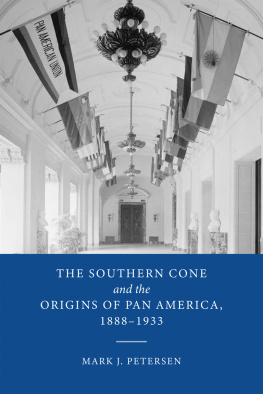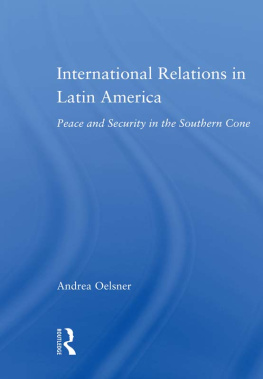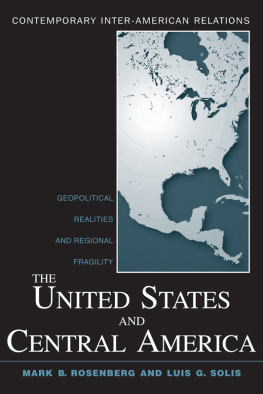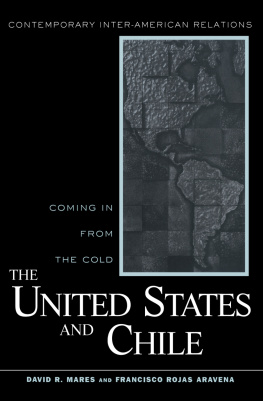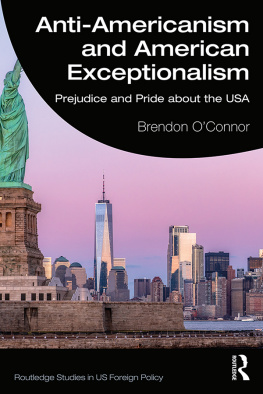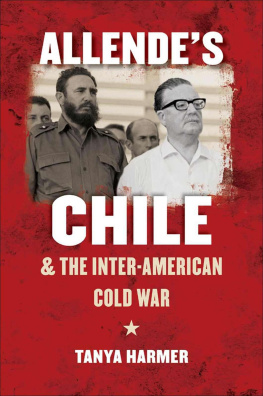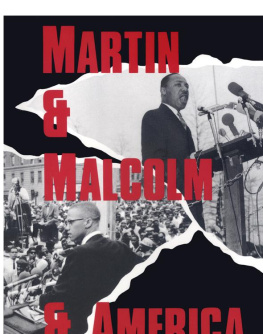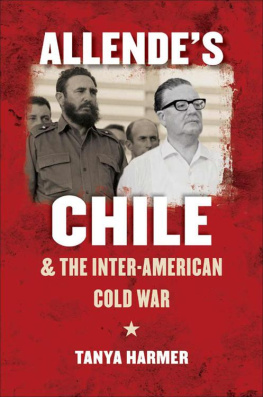ABBREVIATIONS
ABC Argentina, Brazil, and Chile
AIIL American Institute of International Law
FPA Foreign Policy Analysis
IACI Inter-American Childrens Institute
IACW Inter-American Commission of Women
ICAS International Conference of American States
ICCA Inter-American Commission on Commercial Aviation
IHC International High Commission
ILO International Labour Organization
IR International Relations
IRC Intercontinental Railway Commission
IUAR International Union of American Republics
PAAAW Pan American Association for the Advancement of Women
PAIGH Pan American Institute of Geography and History
PAN Partido Autonomista Nacional
PASB Pan American Sanitary Bureau
PAU Pan American Union
SRA Sociedad Rural de Argentina
TAN Transnational Advocacy Network
UCR Unin Cvica Radical
ACKNOWLEDGMENTS
This book was many years in the making and involved the contributions of many people to whom I am deeply indebted. The project began while I was a graduate student in Oxford University under the guidance of Alan Knight and Jay Sexton. Their encouragement and feedback were invaluable, and both offered crucial help in securing funding for my research. Their mentoring has continued to shape me as a scholar since then. I also had the fortune of working with Eduardo Posada Carb, whose kindness and dedication to supporting junior scholars is exemplary. Patience Schell and Eduardo read the thesis that provided a foundation for this book and offered important suggestions. While in Oxford, I greatly benefited from conversations with scholars in various disciplines. Many of these took place within the Latin American Centre (LAC) based in St. Antonys College and the Rothermere American Institute. The LACs weekly Latin American History seminars, and the convivial dinners in Jericho that followed them, were a highlight of my time in Oxford. I offer special thanks to Dawn Alexandrea Berry, Nigel Bowles, Louise Fawcett, Graciela Iglesias-Rogers, Hal Jones, Leigh Payne, Timothy Power, and Diego Snchez-Ancochea. Carsten Schulz, whom I met while in Oxford, has been a good friend, collaborator on multiple projects, and valuable source of help on international relations questions. I also thank the staff of the LAC, including Elvira Ryan and librarian Frank Egerton, for helping with the logistics of my research.
Many others beyond Oxford deserve my gratitude. While researching in Chile, I benefited immensely from the insights and generosity of J. Ricardo Couyoumdjian, Joaqun Fermandois, Ivn Jaksic, Ren Millar, and Juan Luis Ossa. On the other side of the cordillera, in Buenos Aires, Martn Castro, Klaus Gallo, Sebastin Rodrguez, and Eduardo Zimmermann offered me their time, thoughts, and encouragement. Conversations and conference panels with Juan Pablo Scarfi have been crucial to my understanding of pan-American cooperation. So, too, have conversations with David Sheinin. David kindly read an early draft of this work; his feedback was fundamental in clarifying and reorganizing my analysis. I am also thankful for the chats about inter-American history at conferences, via email, and over coffee or beer with Teresa Davis, Rolando de la Guardia Wald, Genevive Dorais, Juliette Dumont, Caitlin Fitz, Teresa Huhle, Tom Long, David Longhurst-Jones, Andrei Mamolea, Corrine Pernet, and Monica Rankin. In Dallas, I am fortunate to have a network of supportive colleagues and fellow historians. They include the University of Dallas (UD) Latin American Studies faculty, Jos Espericueta, Nfer Muoz Solano, and Carla Pezzia; the UD History faculty, especially Susan Hanssen and Charlie Sullivan; Sally Hicks; and the members of the Dallas Area Society of Historians, especially coordinator Stephanie Cole. I thank the staff at the various archives and libraries listed in the bibliography and send special thanks to Noelia Herrera, Roberto Mercado, Karin Schmutzer, and Sandra Riveros.
My research would not have been possible without generous funding from several sources. My early research was supported by grants from Corpus Christi College, Oxford, the History Faculty at Oxford, the Rothermere American Institute, and the Santander Academic Travel Fund. In recent years, funds for research have come from UD King/ Haggar Scholar Awards, the Dean of Constantin College (UD), and the UD Undergraduate Research Fund. That final source of funding allowed me to bring on Patrick Gomez and David Morales as research assistants for a related project on the Bulletin of the Pan American Union. Their work was useful to this project as well.
I am profoundly grateful to Eli Bortz at the University of Notre Dame Press for his support, encouragement, and help in bringing the manuscript to publication. Thanks, also, to Tom Long and Max Paul Friedman for their valuable suggestions for revision.
There are also many friends who have been blessings to me throughout the process of researching and writing. Some of them even read drafts! My thanks go to David and Kathi Bubb, Mara Eva Bustos, Victoria Crcamo, Rosa Garca, Sophia Kerridge, the denizens of Londres 88, Julie Maher, Sue Matthew, Phil Ng, Rosa Peralta, Hugh Reid, Ral Rojas, Jim Robinson, Ralph Stevens, Mauricio Soldavino, Carolina Suznabar, Blair Thompson-White and Adam White, Mara van der Lugt, and members of Catedral Anglicana de San Juan Bautista (Buenos Aires), Grace UMC Dallas (especially the Wednesday Night Small Group), Santiago Community Church, and Wesley Memorial Church (Oxford).
A special thought goes to my family. Their love and encouragement played a major role in shaping my work and me. My parents, Carlen and Grant, have supported me in countless ways and instilled in me a love of learning and history. I thank them, along with Andrew and Jacquelyn Petersen, Matt and Heather Petersen, Lisa Den Besten, and John Ericson. Finally, to my talented wife, Janet: thank you for your patience, your suggestions, your willingness to listen, and your ability in all situations to remind me of greater blessings.
MARK J. PETERSEN
is associate professor of history at the University of Dallas.
BIBLIOGRAPHY
ARCHIVAL SOURCES
AGNA: Archivo General de la Nacin, Buenos Aires, Argentina
AJP: Fondo Agustn P. Justo
JAR: Fondo Julio A. Roca
MC: Fondo Miguel Can MU: Fondo Manuel Ugarte
VDLP: Fondo Victorino de la Plaza
AGNU: Archivo General de la Nacin, Montevideo, Uruguay Fondo Ministerio de Instruccin Pblica
AMRE: Archivo General del Ministerio de Relaciones Exteriores, Santiago, Chile
CRG: Fondo Conrado Ros Gallardo
Fondo Circulares
Fondo Histrico
AMRECIC: Archivo Histrico del Ministerio de Relaciones Exteriores y Culto, Buenos Aires, Argentina
Serie 25: Conferencias Panamericanas
AMREU: Archivo del Ministerio de Relaciones Exteriores del Uruguay, Montevideo, Uruguay
Fondo Congresos Internacionales Quinto Conferencia Panamericana
Fondo Legacin del Uruguay en Washington, DC
ANH: Archivo Nacional Histrico, Santiago, Chile
EBC: Fondo Emilio Bello Codesido
FV: Fondos Varios
SFL: Fondo Sergio Fernndez Larran
ARNAD: Archivo Nacional de la Administracin, Santiago, Chile Ministerio de Relaciones Exteriores
BN: Biblioteca Nacional, Santiago, Chile
Archivos Documentales
CML: Columbus Memorial Library, Organization of American States, Washington, DC, USA
LSR: Leo S. Rowe Papers
LOC: Library of Congress, Manuscript Division, Washington, DC, USA
CHP: Cordell Hull Papers
HFP: Henry Fletcher Papers
JBP: John Barrett Papers
NARA: National Archives and Records Administration, Washington, DC, USA
RG59: Record Group 59, General Records of the Department of State
MICROFILM COLLECTIONS
LOC: Library of Congress, Washington, DC
Next page
